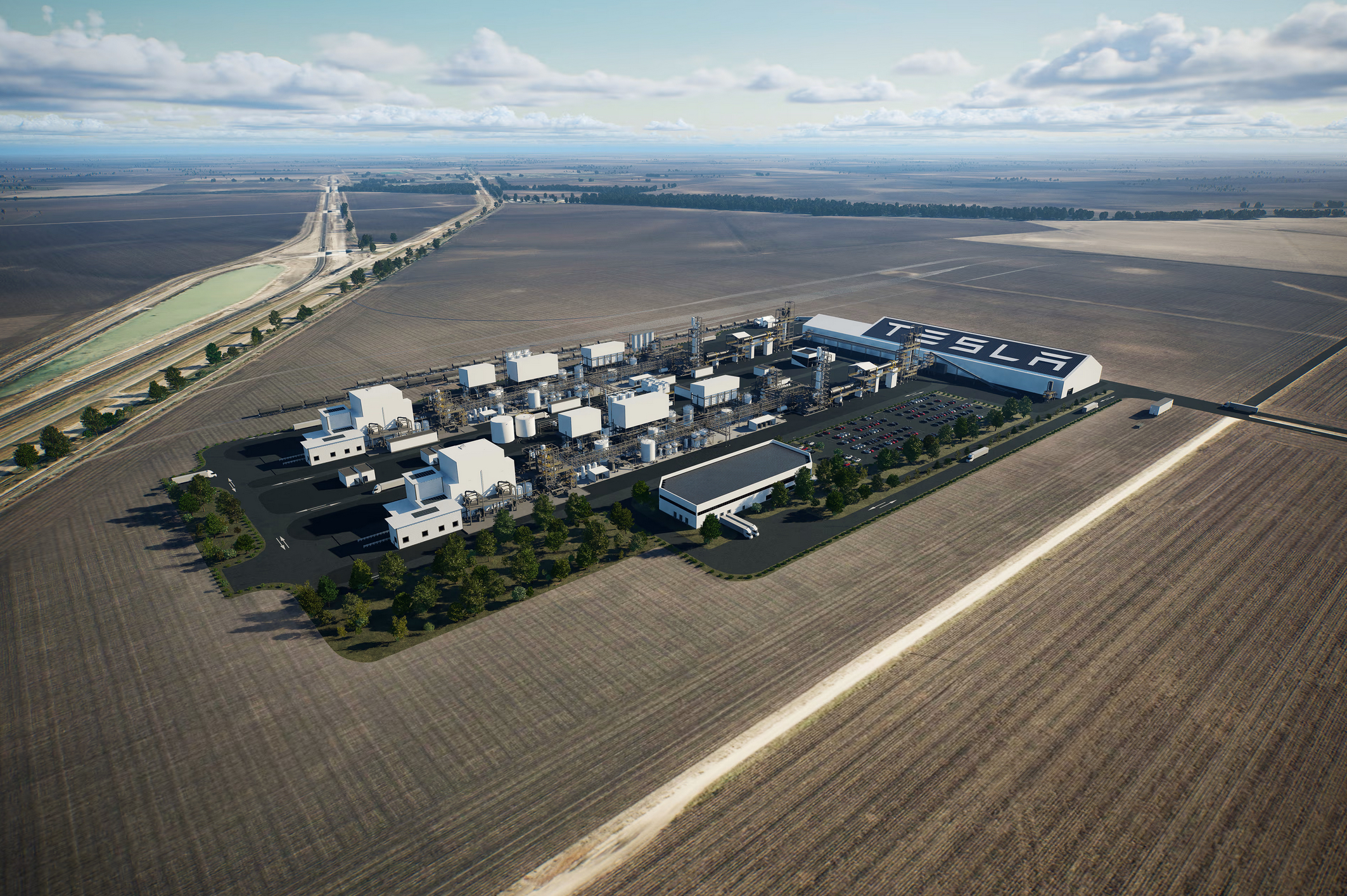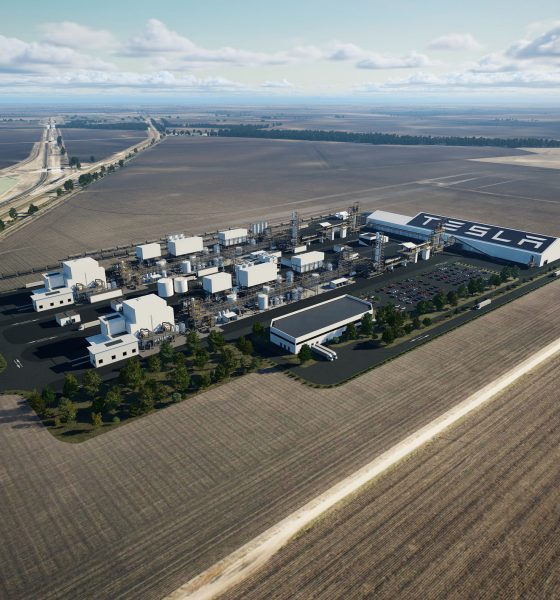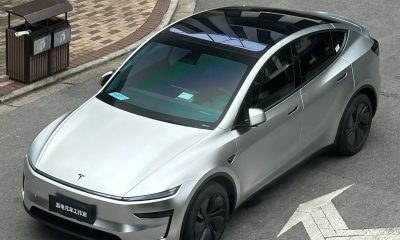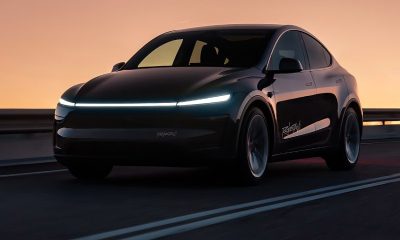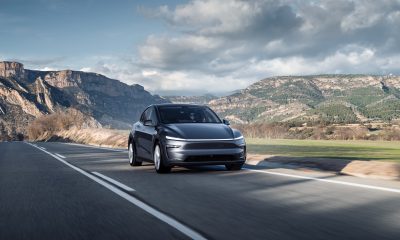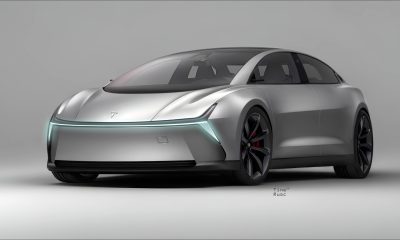Tesla has officially started operations at its new lithium refining factory in Texas, coming over a year after the company first broke ground on the site.
On Saturday, the Tesla North America account on X announced that, for the first time, the team fed raw materials through the kiln of its Robstown lithium refinery. The site, located outside of Corpus Christi, is the first large-scale refinery for battery-grade lithium in the U.S., and the first industrial deployment of an acid-free lithium refining route, as detailed by Tesla in its original announcement for the project.
“This investment is critical to our mission to accelerate the world’s transition to sustainable energy and represents our efforts to aggressively increase the supply of battery-grade lithium hydroxide available in North America,” the company writes.
Upon reaching volume production, the lithium refinery is expected to produce around 50 GWh of battery-grade lithium annually.
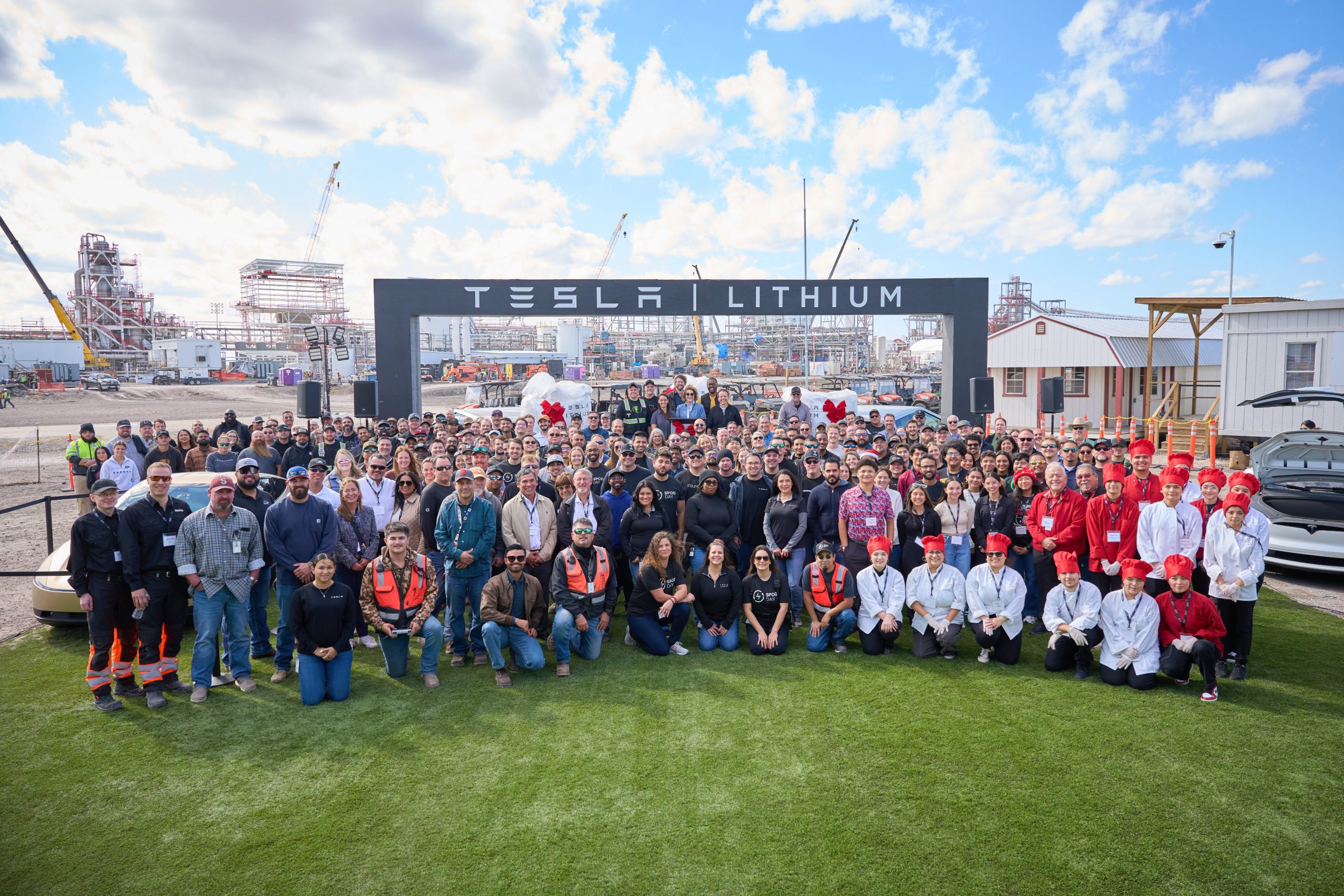
Credit: Tesla North America | X
READ MORE ON TESLA LITHIUM: Tesla’s proposed TX lithium refinery takes step forward as school district ratifies tax abatements
Some also noticed that there was a Tesla Cybercab in the background of the picture posted alongside the announcement, following the company’s official unveiling of the two-seat robotaxi in October.
Tesla is currently hiring at the Robstown, Texas facility, and you can find the company’s open job listings on its careers page.
Tesla broke ground on the lithium refining facility last May, though the company has been making steady progress on construction throughout much of this year. The site was initially aiming to start production in Q1 this year, with construction valued at roughly $375 million.
The news also comes as the U.S. and other North American and European markets aim to decrease reliance on China for the processing of minerals for electric vehicle (EV) batteries. While plans for more lithium refineries are underway in the U.S., and there are a handful of active and planned lithium mining sites, this factory represents an important step toward making domestic production of EV batteries a reality.
According to an October report from Reuters, China makes up around two-thirds of the world’s lithium chemical output, as is used in batteries for EVs, as well as phones, computers, and many other consumer electronics.
What are your thoughts? Let me know at zach@teslarati.com, find me on X at @zacharyvisconti, or send us tips at tips@teslarati.com.
Tesla supplier Piedmont Lithium gains mining approval in North Carolina
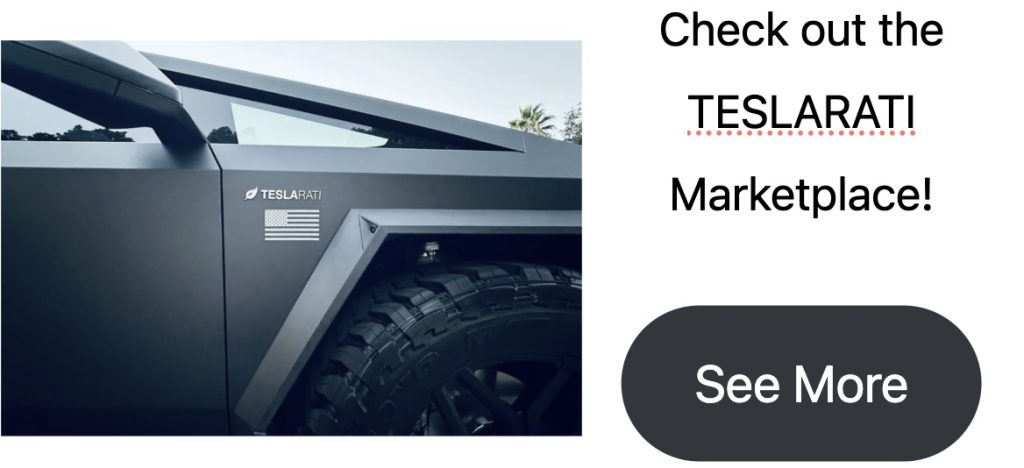
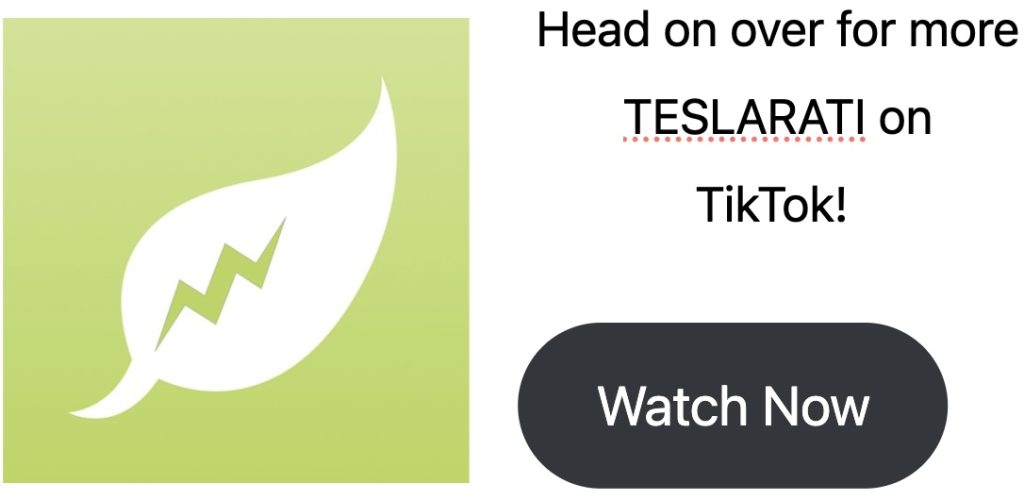
News
Tesla rolling out Robotaxi pilot in SF Bay Area this weekend: report
Similar to the Austin pilot, the Robotaxi rides will reportedly be a paid service.
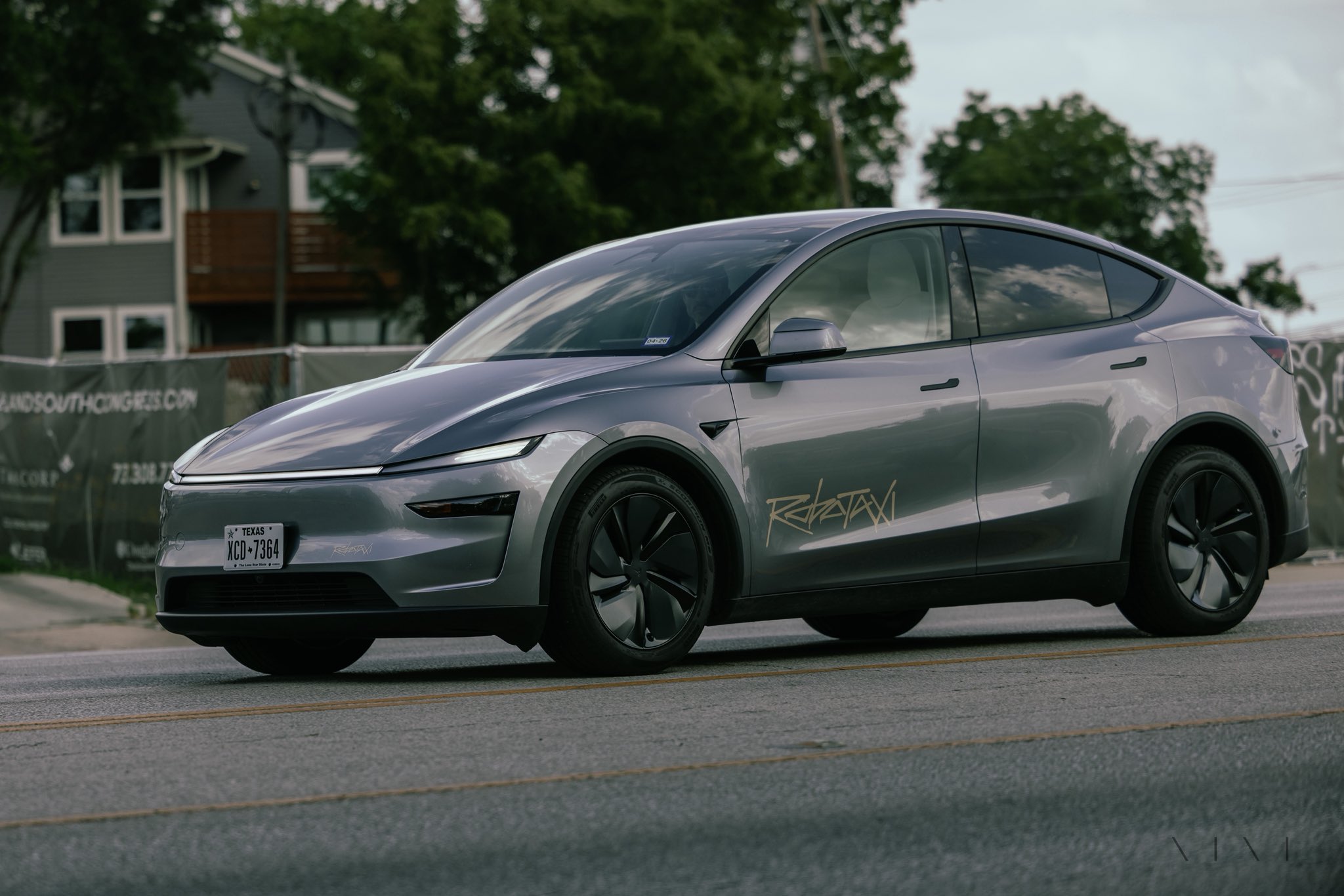
Tesla is reportedly preparing to launch a Robotaxi pilot program in the Bay Area this weekend, with invites to a select number of customers reportedly being sent out as early as this Friday.
The update was shared in a report from Insider, which cited an internal memo from the electric vehicle maker.
New Robotaxi service launch
According to Insider, the Robotaxi service in the Bay Area is set to launch as soon as Friday. Thus, some Tesla owners in the area should receive invites to use the driverless ride-hailing service. Similar to the Austin pilot, the Robotaxi rides will reportedly be a paid service.
The publication noted that the Robotaxi service’s geofence in its Bay Area launch will be quite large, as it will include Marin, much of the East Bay, San Francisco, and San Jose. This is not surprising as California has long been saturated with Teslas, and it is home to several of the electric vehicle maker’s key facilities.
Unlike the Austin pilot, the Tesla Robotaxi service’s pilot in the Bay Area will use safety drivers seated in the driver’s seat. These drivers will be able to manually take over using the steering wheel and brakes as needed. As per a spokesperson from the California DMV, the agency recently met with Tesla but the company is yet to submit a formal application to operate fully driverless cars.
Tesla Robotaxi expansion
Interestingly enough, Tesla did tease the release of its Robotaxi service to the Bay Area in its second quarter earnings call. While discussing the service, Tesla VP of Autopilot/AI Software Ashok Elluswamy mentioned that the company will initially be rolling out Robotaxis with safety drivers in the San Francisco Bay Area. He did, however, also highlight that the electric vehicle maker is working hard to get government permission to release the service for consumers.
“The next thing to expand would be in the San Francisco Bay Area. We are working with the government to get approval here and, in the meanwhile, launch the service without the person in the driver seat just to expedite and while we wait for regulatory approval,” he stated.
News
Tesla is ready with a perfect counter to the end of US EV tax credits
Tesla executives have mentioned that these more affordable models would resemble the company’s current lineup.
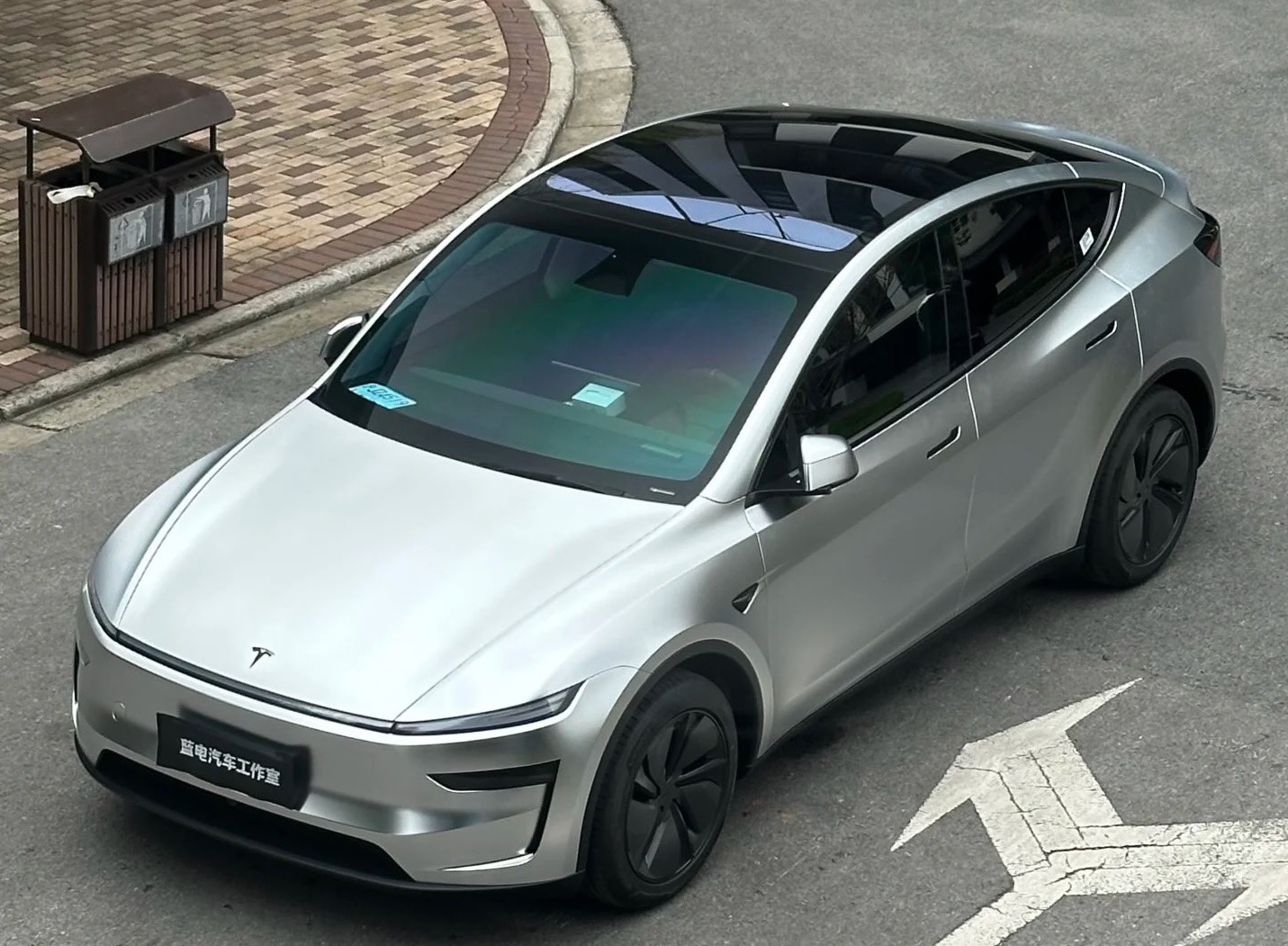
The United States’ electric vehicle tax credit is coming to an end at the end of the third quarter. Tesla, the country’s leading electric vehicle maker, is ready to meet this challenge with a rather simple but clever counter.
Tesla executives outlined this strategy in the recently held Q2 2025 earnings call.
End of the US EV tax credit
While Elon Musk has always maintained that he prefers a market with no EV tax credit, he also emphasized that he supports the rollback of any incentives given to the oil and gas industry. The Trump administration has not done this so far, instead focusing on the expiration of the $7,500 EV tax credit at the end of the third quarter.
Tesla has been going all-in on encouraging customers to purchase their vehicles in Q3 to take advantage of lower prices. The company has also implemented a series of incentives across all its offerings, from the Cybertruck to the Model 3. This, however, is not all, as the company seems to be preparing a longer-term solution to the expiration of the EV tax credit.
Affordable variants
During the Q2 2025 earnings call, Vice President of Vehicle Engineering Lars Moray stated that Tesla really did start the production of more affordable models in June. Quality builds of these vehicles are being ramped this quarter, with the goal of optimizing production over the remaining months of the year. If Tesla is successful, these models will be available for everyone in Q4.
“We started production in June, and we’re ramping quality builds and things around the quarter. And given that we started in North America and our goal is to maximize production with a higher rate. So starting Q3, we’re going to keep pushing hard on our current models to avoid complexity… We’ll be ready with new, more affordable models available for everyone in Q4.,” Moravy stated.
These comments suggest that Tesla should be able to offer vehicles that are competitively priced even after the EV tax credit has been phased out. Interestingly enough, previous comments from Tesla executives have mentioned that these more affordable models would resemble the company’s current lineup. This suggests that the more affordable models may indeed be variations of the Model Y and Model 3, but offered at a lower price.
Elon Musk
Elon Musk reveals Tesla’s next Robotaxi expansion in more ways than one
Tesla Robotaxi is growing in more ways than one. Tesla wants to expand and hopes to reach half the U.S. population by the end of the year.
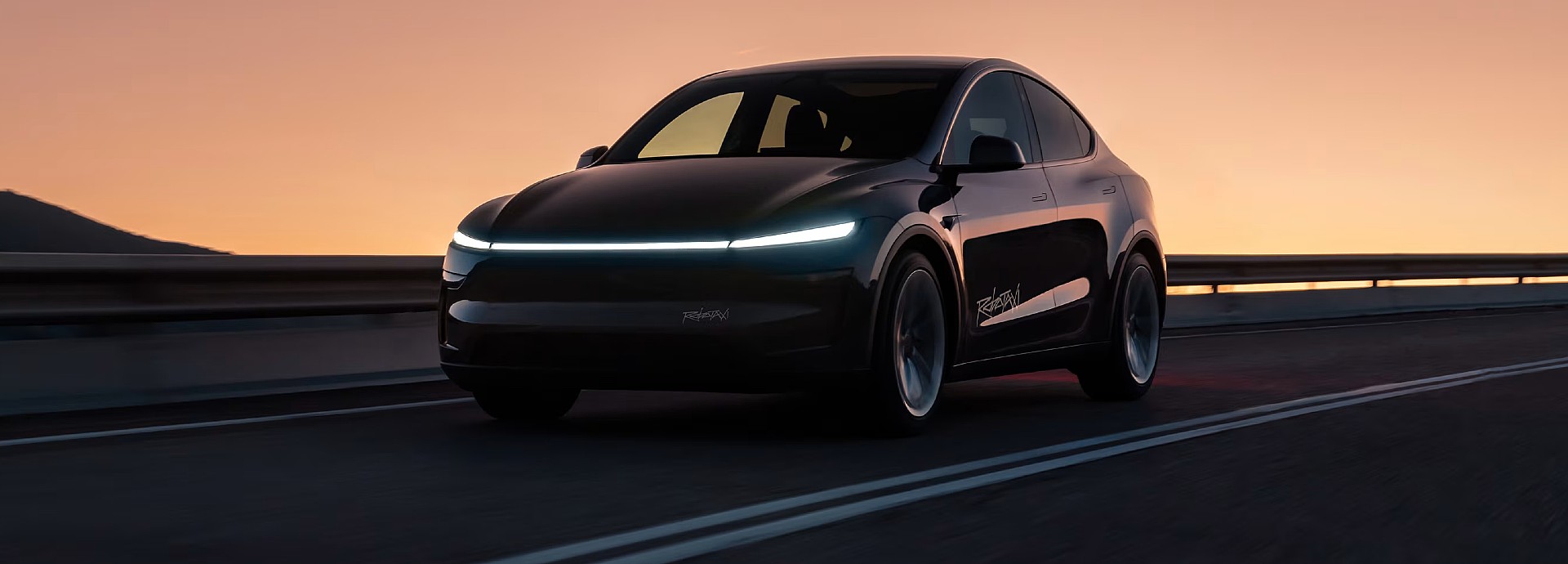
Tesla CEO Elon Musk revealed the company’s plans for its next expansion of the Robotaxi in terms of both the geofence in Austin and the platform overall, as it looks to move to new areas outside of Texas.
Tesla launched the Robotaxi platform last month on June 22, and has since expanded both the pool of users and the area that the driverless Model Y vehicles can travel within.
The first expansion of the geofence caught the attention of nearly everyone and became a huge headline as Tesla picked a very interesting shape for the new geofence, resembling male reproductive parts.
🚨 Elon Musk says Tesla’s Robotaxi geofence in Austin will get “even bigger and longer” in “a couple weeks or so” pic.twitter.com/0gLeKfURMi
— TESLARATI (@Teslarati) July 23, 2025
The next expansion will likely absolve this shape. Musk revealed last night that the new geofence will be “well in excess of what competitors are doing,” and it could happen “hopefully in a week or two.”
Musk’s full quote regarding the expansion of the geofence and the timing was:
“As some may have noted, we have already expanded our service area in Austin. It’s bigger and longer, and it’s going to get even bigger and longer. We are expecting to greatly increase the service area to well in excess of what competitors are doing, hopefully in a week or two.”
The expansion will not stop there, either. As Tesla has operated the Robotaxi platform in Austin for the past month, it has been working with regulators in other areas, like California, Arizona, Nevada, and Florida, to get the driverless ride-hailing system activated in more U.S. states.
Tesla confirmed that they are in talks with each of these states regarding the potential expansion of Robotaxi.
Musk added:
“As we get the approvals and prove out safety, we will be launching the autonomous ride-hailing across most of the country. I think we will probably have autonomous ride-hailing in probably half the population of the US by the end of the year.”
We know that Tesla and Musk have been prone to aggressive and sometimes outlandish timelines regarding self-driving technology specifically. Regulatory approvals could happen by the end of the year in several areas, and working on these large metros is the best way to reach half of the U.S. population.
Tesla said its expansion of the geofence in Austin is conservative and controlled due to its obsession with safety, even admitting at one point during the Earnings Call that they are being “paranoid.” Expanding the geofence is necessary, but Tesla realizes any significant mistake by Robotaxi could take it back to square one.
-
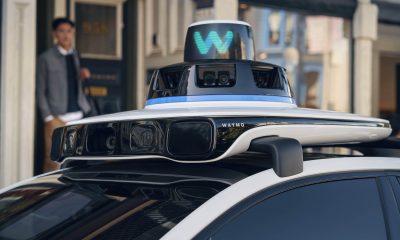
 Elon Musk1 week ago
Elon Musk1 week agoWaymo responds to Tesla’s Robotaxi expansion in Austin with bold statement
-

 News1 week ago
News1 week agoTesla exec hints at useful and potentially killer Model Y L feature
-
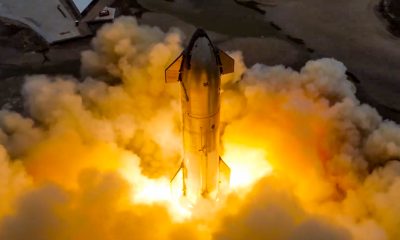
 Elon Musk1 week ago
Elon Musk1 week agoElon Musk reveals SpaceX’s target for Starship’s 10th launch
-

 Elon Musk1 week ago
Elon Musk1 week agoTesla ups Robotaxi fare price to another comical figure with service area expansion
-

 News1 week ago
News1 week agoTesla’s longer Model Y did not scale back requests for this vehicle type from fans
-

 News1 week ago
News1 week ago“Worthy of respect:” Six-seat Model Y L acknowledged by Tesla China’s biggest rivals
-

 News1 week ago
News1 week agoFirst glimpse of Tesla Model Y with six seats and extended wheelbase
-

 Elon Musk1 week ago
Elon Musk1 week agoElon Musk confirms Tesla is already rolling out a new feature for in-car Grok

